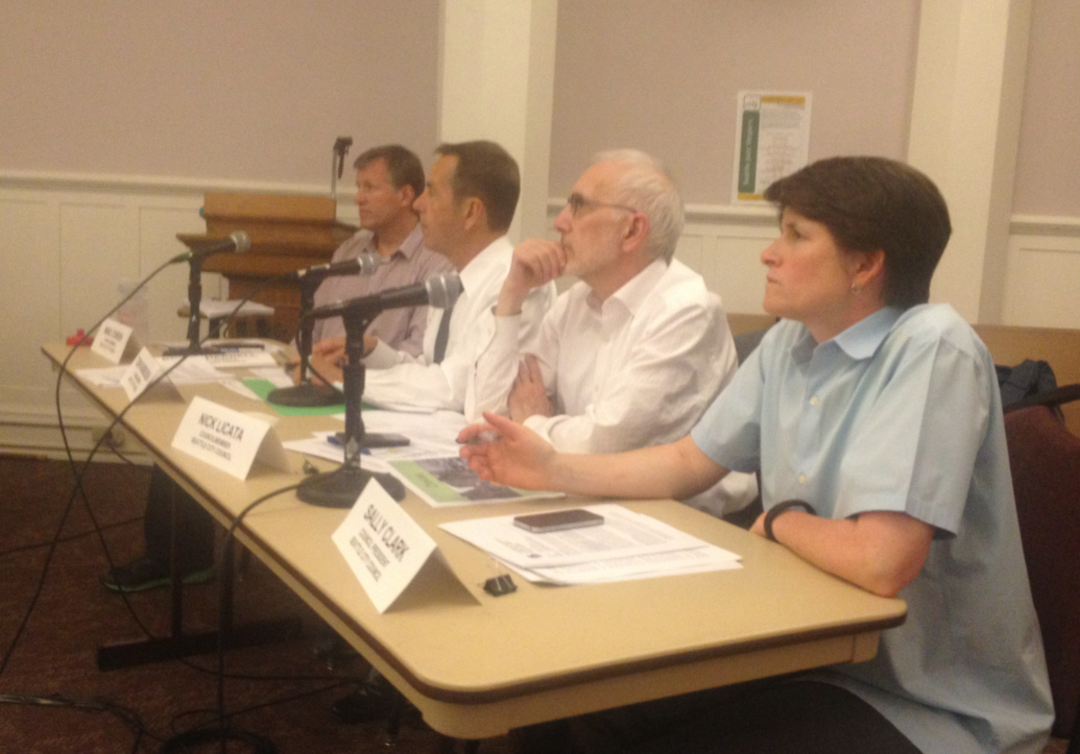On Other Blogs Today: Tiny Apartments, Big Spending, and More

OOBT
1. Here's another take on the microhousing, or "aPodments" debate, from Roger Valdez, who spoofs aPodment opponents' arguments that the small units can't accommodate more than one sink, therefore residents (living, as we noted this morning, like Soviet bloc "Eastern Europe") can't cook, therefore they will die early of health problems related to eating out too frequently.
Ultimately, Valdez argues, the opponents of microhousing are in favor of extreme social engineering:
What is disturbing about the debate so far is not just the fact that Council is considering doing something to fix something that is already working—small units are meeting an obvious demand for housing—but that opponents of change want to get into the bathroom and kitchen of new residents of Seattle. They know how you should live and where you should live and what you should pay.

City Council members at aPodment forum
2. The Washington Education Association—the statewide teachers' union—spends hundreds of thousands of dollars a year on lobbying (more than $300,000 in the first three months of 2013 alone), but it's unclear, the News Tribune reports, what they get for their considerable outlay.
"In the past couple of years," the TNT reports, "lawmakers have enacted several laws over WEA opposition, including changes to teacher evaluations that may make it easier to fire teachers who get low marks.
3. The Don Benton plot thickens: According to the Columbian, the Republican state senator's predecessor as head of Clark County's environmental services department was forced out after he launched an investigation into employees' misuse of county time, resources, and funds.
Benton was appointed on a party-line vote by the county commission despite lacking any of the listed qualifications for the job; the three-member commission's lone Democrat stormed out after the vote. Benton's new job pays $110,000 a year.
4. Seattle Transit Blog reports that King County Metro is adding basic facilities at some bus stops—not bells and whistles like lights or benches, but stuff like signs that actually display the routes that serve a particular stop, or schedules for those routes.
"Lack of basic comforts and dignity at bus stops perpetuate the corrosive notion that transit riders — bus riders in particular — are second-class citizens," STB writes. "If our local and regional governments are to stand a chance at achieving the mode-share goals they have set themselves, if we are serious about providing an alternative to universal car ownership, this kind of prejudice needs to die, which implies that this kind of substandard facility must precede it in death.




